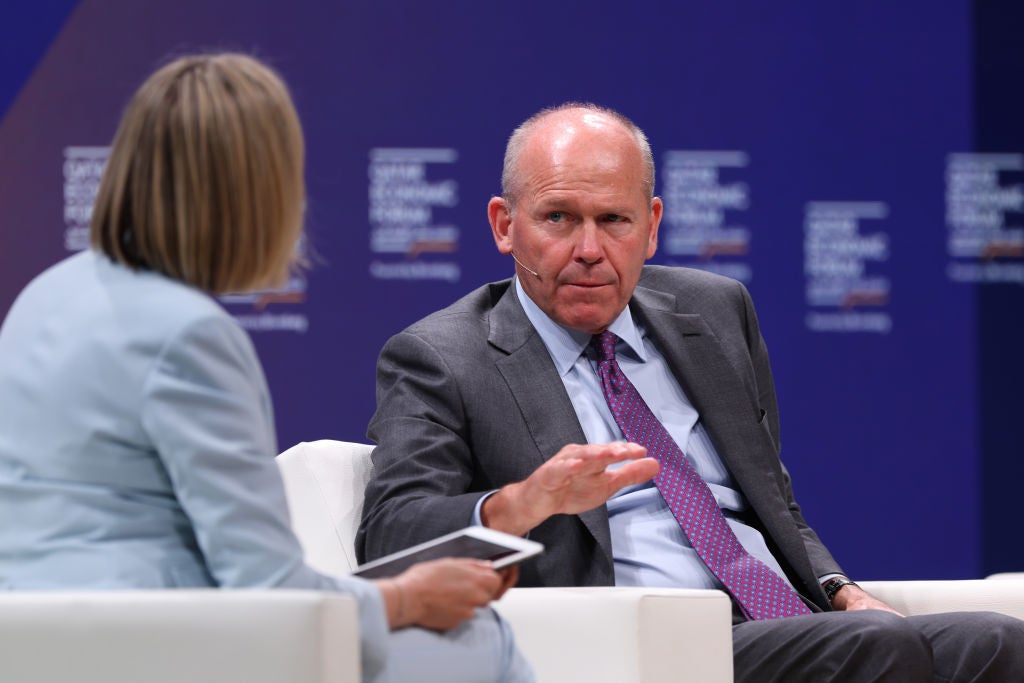
Sustainable aviation fuels (SAFs) will “never achieve the price of jet fuel”, Boeing CEO Dave Calhoun has said, complicating hopes that the aviation industry might use biofuels or efuels as a key method to reduce greenhouse gas emissions.
Calhoun said to the Financial Times that while SAFs will be scaled and become more economical to use, he does not believe that sustainable fuel will ever be as cheap as Jet A, a kerosine aviation fuel.
“I do not think that will ever happen. It is more positive, and it will have an impact, but it’s going to be what it’s going to be,” he said.
“There are no cheap ways to do SAF. If there were, we would already be doing them,” Robert Campbell, head of energy transition research at analyst company Energy Aspects, said about Calhoun’s comments.
Former CEO of British Airways Willie Walsh told a Financial Times conference last week that an increase in SAF use would be costly. “It is achievable,” he said, but “passengers will have to pay higher fares. We need to be honest with our customers.
“Airlines are not in a financial position to absorb that cost, so ultimately it will have to be passed on to consumers.”
How well do you really know your competitors?
Access the most comprehensive Company Profiles on the market, powered by GlobalData. Save hours of research. Gain competitive edge.

Thank you!
Your download email will arrive shortly
Not ready to buy yet? Download a free sample
We are confident about the unique quality of our Company Profiles. However, we want you to make the most beneficial decision for your business, so we offer a free sample that you can download by submitting the below form
By GlobalDataThe Financial Times reported on Monday that the roll-out of zero-emissions planes powered with hydrogen would require $323.3bn of investment and a tax on traditional jet fuels.
SAFs currently account for less than 1% of global aviation fuel consumption, yet governments and airlines have often hailed SAFs, which are made from biomass or green electricity, as a critical way to reduce emissions from the industry.
Recent climate legislation from the US and European Commission aims to accelerate the commercialisation of SAFs. The US Government’s Inflation Reduction Act provides tax credits and other subsidies for SAF production and use. Last month, the EU agreed on binding targets for airlines in Europe to increase the uptake of SAFs.
On top of financial and scalability concerns come issues relating to actual emissions reductions from SAFs. Airlines have claimed that sustainable fuels can reduce CO₂ emissions by 70%. However, NGO the Aviation Environment Federation points out that SAFs produce at least as much CO₂ as kerosene fuel when burned, with emissions savings occurring only in the production stage.
Boeing and rival company Airbus have both pledged to render all of their aircraft capable of handling 100% SAF by 2030, according to the Financial Times. This is compared with 50% at present. Airbus has also said that by 2035 it will be operating zero-emissions hydrogen aircraft but has cautioned about the current rate of necessary infrastructure development.







